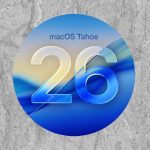What is “System Data” on my Mac storage drive?
Related Articles
- What is the iPhone Air?
- What does it mean when an external hard drive format is for Mac or for Windows?
- Designed by Apple in California. Loved in Colorado.
- How do I migrate my iTunes and App Store purchases to another Apple Account.
- Boulder Mac Repair is currently purchasing Apple Devices for resale.
When evaluating the use of their storage drive people are often confronted with “System Data” that can take a sizable amount of space.
System data on your Mac storage drive typically refers to the files and data that are essential for the functioning of your macOS operating system. This can include:
- System Files: Core files necessary for the operating system to function properly.
- System Logs: Records of system events, errors, and activities.
- System Cache: Temporary files stored by the system to speed up operations.
- System Updates: Installation files and backups of macOS updates.
- Virtual Memory Swap Files: Space on your drive used as virtual memory when physical RAM is full.
- Application Support Files: Some application data that is crucial for system-wide functionalities.
- Temporary Files: Various temporary files created during system and application operations.
- Preferences and Settings: Configuration files for the operating system and applications.
- Trash: Files in the Trash that haven’t been emptied.
- Other System-related Data: This can include diagnostic data, crash reports, localization files, etc.
These files are essential for the proper functioning of your Mac, but they can also accumulate over time and take up significant disk space. It’s a good idea to periodically review and clean up unnecessary system data to free up storage space and maintain optimal system performance. However, exercise caution when deleting system files, as removing essential components can cause issues with your Mac’s operation.

Does using iCloud Drive impact the amount of “System Data” on my Mac?
iCloud Drive can indirectly increase the amount of system data on your Mac’s drive, primarily due to the following reasons:
- Local Caching: When you enable iCloud Drive on your Mac, it keeps a local cache of recently accessed files. This cache allows for quicker access to files without needing to download them from iCloud every time. While this caching mechanism can improve performance, it does consume local storage space.
- Optimized Storage: macOS includes a feature called “Optimize Mac Storage” which automatically manages storage by keeping frequently accessed files locally while storing less-used files in iCloud Drive. While this feature helps free up local storage space, it also means that system data related to managing these files, such as metadata and file indexing, may increase.
- iCloud Drive Application and Preferences: The iCloud Drive application itself, along with associated preferences and settings, requires storage space on your Mac. While this is typically minimal compared to user data stored in iCloud Drive, it still contributes to the overall system data.
- Temporary Files: When syncing files with iCloud Drive, temporary files may be created on your Mac during the syncing process. These temporary files, while transient, still occupy space on your Mac’s drive.
Overall, while iCloud Drive primarily serves to offload user data to the cloud, the mechanisms it employs for synchronization and optimization can result in an increase in system data on your Mac’s drive. However, this increase is usually manageable and is outweighed by the benefits of having access to your files across multiple devices and the potential for optimized storage space usage.
However, when you use iCloud Drive, it allows you to store files in the cloud rather than locally on your Mac. This can actually help reduce the amount of local storage space taken up by your files, as they are stored in iCloud instead of on your Mac’s drive. However, it’s worth noting that some system-related files, such as system logs, temporary files, and cache files, are not typically stored in iCloud Drive. These files are managed by the operating system and are stored locally on your Mac.
That being said, if you enable features like iCloud Desktop & Documents or optimize storage by storing older files in iCloud Drive, it can indirectly affect the amount of space on your Mac’s drive. By offloading files to iCloud Drive, you may free up local storage space.
Additionally, iCloud Drive itself may consume some system data on your Mac, as the iCloud Drive application and associated files need to be stored locally. However, this is usually a minimal amount compared to the actual user data stored in iCloud Drive.
In summary, while iCloud Drive can indirectly affect the amount of system data on your Mac’s drive by offloading user files to the cloud and potentially freeing up local storage space but increasing the amount of System Data on the storage space, it doesn’t directly impact core system files and data stored on your Mac.
What steps can I take to clean up System Data on my Mac?
Cleaning up system data on your Mac can help free up disk space and improve overall system performance. Here are some steps you can take to clean up system data:
- Remove Unnecessary Applications: Review the applications installed on your Mac and uninstall any that you no longer need. Use Finder or Launchpad to locate the applications, then drag them to the Trash and empty the Trash to uninstall them completely.
- Empty Trash: Make sure to empty the Trash regularly to permanently delete files from your Mac and reclaim disk space. You can do this by right-clicking on the Trash icon in the Dock and selecting “Empty Trash.”
- Manage iCloud Storage: If you use iCloud Drive, iCloud Photos, or other iCloud services, you can manage your storage settings to optimize space usage. Go to System Preferences > Apple ID > iCloud, then click on “Manage” to review and manage your iCloud storage. You can delete old backups, remove unnecessary files from iCloud Drive, and optimize storage to free up space on your Mac.
- Check for Software Updates: Keeping your Mac and applications up-to-date can help improve performance and security. Go to System Preferences > Software Update to check for and install any available updates.
- Periodically Perform a Tune-up: It is recommended to Tune your Mac yearly. This cleans up “bloat” that has built up or been cached on your Mac over time. In addition it removes Malware, repairs corruption and offers a general health overview of your Mac. Boulder Mac Repair offers several Tune-up options.
By following these steps, you can effectively clean up system data on your Mac and optimize disk space usage for better performance.
Are there risks to cleaning up “System Data” on my Mac?
Cleaning up system data on a Mac can provide benefits such as freeing up disk space and improving system performance. However, there are also risks associated with it. Here are some potential risks:
- Deleting Essential System Files: If you’re not careful, you might accidentally delete essential system files or components necessary for the proper functioning of macOS. Removing critical system files can lead to system instability, crashes, or even render your Mac unbootable.
- Loss of Important Data: While cleaning up system data, there’s a risk of inadvertently deleting important user data or settings. For example, deleting cache files or preferences associated with certain applications might result in loss of personalized settings or temporary files needed by those applications.
- Disabling System Features: Some system data might be associated with system features or services. Deleting or tampering with these files could disable or disrupt those features, leading to a loss of functionality or unexpected behavior.
- Impact on Performance: In some cases, aggressive cleaning of system data might negatively impact system performance. For instance, deleting certain cache files that are actively used by macOS or applications could result in slower performance until those caches are rebuilt.
- Voiding Warranty: If you use third-party tools or methods to clean up system data and something goes wrong, it could potentially void your warranty or AppleCare coverage, especially if it involves modifying system files or settings in ways not recommended by Apple.
To minimize these risks, it’s essential to be cautious when cleaning up system data and follow best practices:
- Use reputable Apple service providers and repair shops.
- Always double-check before deleting files to ensure they are not critical system files.
- Create backups of important data before performing any cleanup operations.
By exercising caution and being aware of the potential risks, you can safely clean up system data on your Mac without causing harm to your system.
- What is the iPhone Air?
- What does it mean when an external hard drive format is for Mac or for Windows?
- Designed by Apple in California. Loved in Colorado.
- How do I migrate my iTunes and App Store purchases to another Apple Account.
- Boulder Mac Repair is currently purchasing Apple Devices for resale.
- What’s new in iOS 26?
- What’s new in iPadOS 26?
- What’s new in macOS 26 Tahoe?
- Boulder
- Denver
- Crested Butte
Boulder, Colorado 80304
Saturday 10:00 to 4:00
Denver, Colorado 80204
Saturday 09:00 to 4:00
Sunday 10:00 to 2:00
Crested Butte, Colorado 81224
Saturday: Closed
Sunday: Closed








